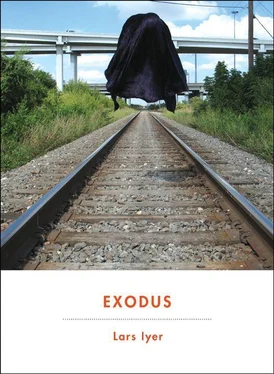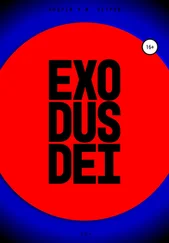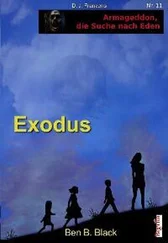I find the company of academics intolerable, W. says. Unbearable! And isn’t he the same? Doesn’t he share something of my dread, and my urge to flee? Isn’t he also becoming something of an academic savage ?
But there are other kinds of people, W. says, that’s what I have to understand. Other ways of being together. Political friendship: do I have any sense of that? Of what it means to band together against a common enemy? Of what it means to share a commitment, to be part of collective work, free from all personal ambition?
W. reminds me of what Tronti wrote of the early days of operaismo :
We brought together a fine old madhouse. During our meetings, we would spend half our time talking, the rest laughing. For us, the classic political friend/enemy distinction was not just a concept of the enemy, but a theory and practice of the friend as well. At that moment, another world was possible. I’ve never yet met people of higher human worth .
Political joy; political laughter, W. says: can I imagine that?
We stop for Indian snacks. Chevda. Murukku: I know all the names, W. says.
Kierkegaard was a man of the street, W. says. At home, Kierkegaard rarely opened his door to anyone. But on the streets, where he walked every day, his high-shouldered, crablike gait familiar to everyone …
Contemporary accounts have him walking arm in arm will all kinds of people: politicians and actors, poets and philosophers, bakers and fruit-sellers, market porters and bar-women. And didn’t Kierkegaard like to go out on the stagecoach to the country, to feel the sun on his face and speak to the farmers in their fields? Didn’t he stand out in the barns and chat with the herdsmen, and sit out by the road with the stone breakers?
But when a satirical review published caricatures of him, Kierkegaard became a laughing stock to his fellow Copenhageners. Children followed him, shouting out the title of his first book: ‘ Either/Or, Either/Or! ’ His former walking companions sniggered …
And so Kierkegaard went inside, closing his doors against the world. His inwardness went unchecked. He became paranoid, raving … faith festered inside him. His belief went sour! He was dying of ridicule! Dying of loneliness! Poor Kierkegaard! Poor Seren! , as they called after him in the street. Poor S ø ren!
And what did they call after me in the street, when I lived in Rusholme? W. asks. What did the children shout after me, as I passed? Ah, but he knows I hid myself from everyone, then as now. I barely left my bedsit, except to go for my evening kebab. To be is to be perceived, Berkeley said. But who perceived me? W. wonders. Only a god or a beast can be alone, according to Aristotle, W. says. Was I god or beast? W. wonders.
Manchester, stranded on a rush-hour bus. We rank our friends in order of their intelligence. Then we rank them in order of their melancholia, and wonder if there’s a correlation. Then we rank them according to their punctuality , cross-referencing our results with our previous findings.
Our brighter friends are always late, we decide, always disorganised. Our brighter friends are also melancholy, which is probably why they can never keep their appointments. How many times have they left us standing, looking at our watches? W. always smiles on such occasions. — ‘There are more important things than meeting us’, he says. ‘Much more important things!’
If anything, I am too punctual, W. says. I’m always there before everyone, anxiously pacing about. What do I think I’m going to miss?
I have a dim sense that something is going to happen — but what? What can I possibly understand of what is going to happen? You can’t replace intelligence with punctuality, W. says.
Our Manchester friends are late, very late. We should pay it no heed, W. says, over our pints in the bar. We should cultivate the art of waiting .
But it’s no good. By the time our friends arrive, fresh from the gym and in their cycling lycra, we are already drunk, and speaking in great apocalyptic gusts. Before long, we’re alone again, having driven our friends away into the night.
‘No one wants to talk to us, have you noticed that?’, W. says. ‘We’re like lepers in the middle ages. Someone might as well be walking in front of us, ringing a bell’.
‘You shouldn’t have told them about the spider people ’, W. says. ‘That’s what did it’. The spider people. Our phenotypes are being disrupted, I’d told our Manchester friends. It’s the increase in carcinogens and tertogens , I’d said. The rise in allergens and hormone disrupters .
Impairment will be the norm, I’d said. Vestigial limbs. The spider people will appear, with their four or five or six spare limbs flailing uselessly in the air.
They’ll be very gentle, the spider people, I’d told our Manchester friends. Very vulnerable. Which means they’ll be set upon at once, their useless limbs pulled off one by one. They’ll be mocked and killed. And probably eaten , I’d said, since there’ll be nothing to eat in the new world. Nothing to eat except spider people.
I drove away our friends, W. says. Futurology and friendship do not mix.
My monk years, W. says. It’s the most mysterious of episodes to him. What drove me to the monks, or, stranger still, the monks to me?
How did I, who had no religious belief, no experience of religion, no understanding of religion, end up living among monks as their guestmaster? How did I, out of all the other candidates — and there must have been other candidates, other monk hangers-on, who would have wanted my role — become guestmaster to a community of monks?
Oh, he knows the story, W. says. It was Kierkegaard that led me there, that’s what I told him, wasn’t it? It was Kierkegaard that made me seek sanctuary during the regeneration of Manchester.
I’d been called to the Job Centre, W. remembers my telling him that. They were hunting us down, the long-term unemployed, the long-term sick. It was time for us to be straightened out and reskilled. Time for flipcharts and group-work and IT training for the new reality.
We were to learn about our transferrable skills , I’ve told W. We were to learn about personal branding . We were to learn about time management and planning and organisation . We were to learn about working well with others , and forming good working relationships . We were to learn about motivation and enthusiasm , about showing initiative and being self-starting . We were to learn about sharing a firm’s mission …
And isn’t that what drove me to the monks? W. says. Wasn’t it in panic that I banged at the monastery gates, and waved my Kierkegaard books in their faces? Save me from the regenerators! Save me from back-to-work training!
But why did the monks take me in? If Dostoevsky had holy fools, W. says, I was an un holy fool: A Prince Myshkin without humility; an Alexei Karamazov without goodness; a Saul who never converted; a Judas after his act of betrayal; a Thomas who did nothing but doubt …
Maybe they were testing their spiritual strength, W. says. Maybe they meant to sharpen the edge of their faith along the whetstone of my un faith. Maybe I was their wilderness, their desert, their devil of temptation. By bringing me close, maybe they sought to bring themselves closer to the presence of God. Maybe it was their effort to force the Messiah.
He sees me in his mind’s eye, W. says. He sees the unholy fool , standing between the monks and the world, admitting guests, showing them up to their rooms which he had carefully readied, preparing lunch and dinner for them. He sees me, W. says, although he doesn’t understand what he sees: the monastery idiot , making beds and running his cloth along the dado, taking the coats and hats of ecclesiastical callers, making pleasantries in the oak-parqueted reception room. He sees me, W. says, the community divvy , arm in arm with a monk he’s escorting across the icy pavement. He sees me, the monastery imbecile , sitting in attendance at ecumenical dinners, smiling on nut-brown Copts, and calling taxis for white-robed Dominicans heading back to the station.
Читать дальше












